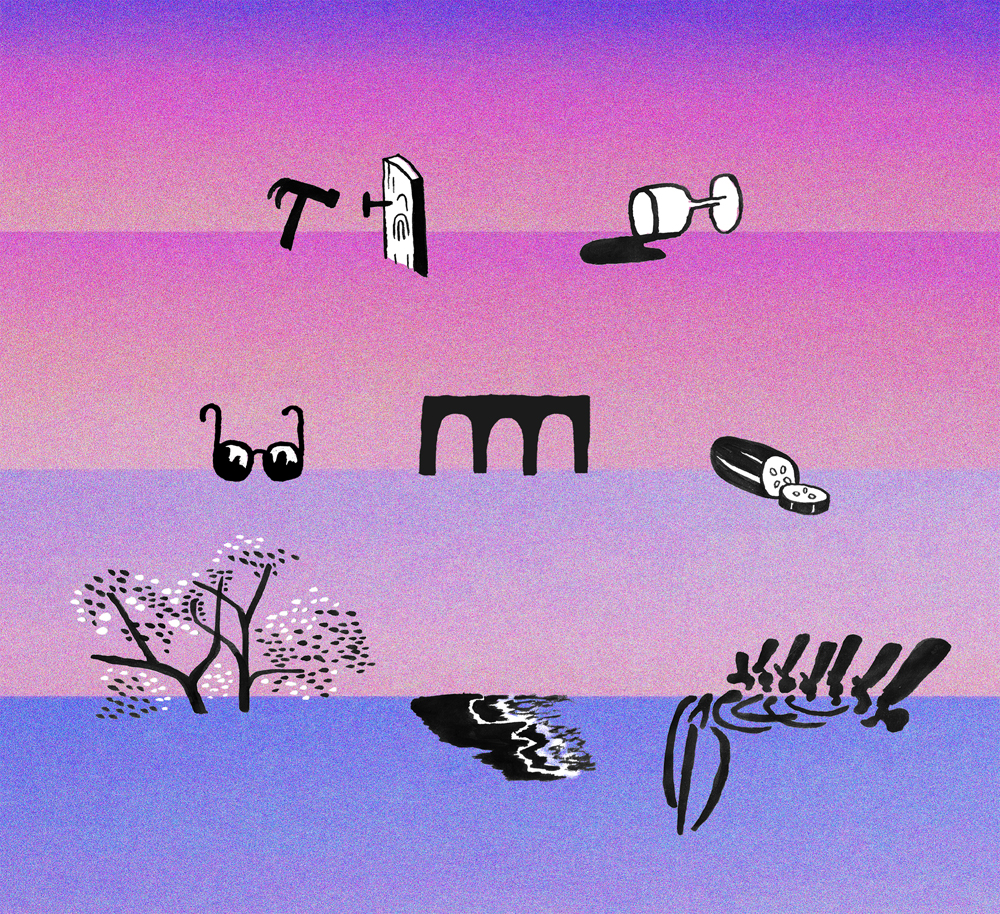Babelsprech International is a series created through the cooperation of Babelsprech and Hilda Magazine, in partnership with the Dutch online magazine Samplekanon, as well as Full Stop.
The series was initiated by Babelsprech, a two-year-old project striving to connect the German, Swiss and Austrian poetry scenes, in order to move these respective scenes and their histories closer to each other for a younger generation. With this collection of essays, Babelsprech has decided to leave the German speaking sphere to work towards the possibility of a world society of poets.
Cooperating with three other online, international literature magazines, each addressing its own distinct audience and community, the series will introduce the contemporary poetry scenes of various countries to each other. Babelsprech International presents a series of essays by poets themselves, providing insight on disparate poetic communities and histories from an inside perspective.
Each article is published in German and English on Babelsprech, in English on Hilda Magazine and Samplekanon and excerpted in English on Full Stop.
* * *
Many people have loved
me, but none have been
an open field. Cucumbers;
somewhat plump calves.
– Harry Salmenniemi, a young and influential experimental poet
For the last couple of months I’ve mainly lived in Finland. I did some performances, visited readings and events and talked to numerous poets. Slowly, week by week, an image of the contemporary poetry scene crystallize. It’s a vague image, not more than a sketch; my still embryonic mastering of the Finnish language made me dependent on outward appearances and second hand information. Nevertheless, this sketch can give a hint about the vibrant scene of a small country. I’ll achieve this I’ll focus on two phenomena of contemporary poetry that seem important to the Finnish scene: the poets around the small publishing house Poesia, and the events of the Helsinki Poetry Connection.
1. Poesia : a publishing collective in Jyväskylä
In Finnish terms, Jyväskylä, with its roughly 130,000 citizens, is a full-grown city. A quarter of them are students. The old wooden center was torn down in the fifties to be replaced by concrete buildings, and despite the inevitable woods and lakes it is impossible to escape the drone of traffic. People play ice hockey, get drunk in front of monstrous shopping centers and have fights in front of student bars. And yet, this inconspicuous town has grown in the last decade into the most important center for Finnish poetry after Helsinki.
There are two main meeting places for poets in Jyväskylä. One is the only artist’s bar in town: Vakiopaine. In addition to concerts and nightly drinking bouts, poetry readings are fairly common. At the open mic nights, which are held at erratic intervals, it is hard to get a seat or even to stand in the audience. Almost all newly released Finnish poetry books will be presented by the authors themselves in Vakiopaine one day or the other.
The other main meeting place is Kirjailijatalo the “Writer’s House,” a roughly one hundred year old wooden building in the university district. It offers a selection of literary magazines to browse through, hosts readings and is used as a meeting place for literary organizations. The house also serves as a residency for writers both from Finland and abroad, usually without bureaucratic application procedures. Sometimes an impoverished poet may stay for months or even years, no one seems to bother. (Since the only regular employee of the writer’s house was fired in December 2013, the unannounced visitor finds the doors more often locked then not, a fact that endangers the importance of this meeting place.)
Kirjailijatalo is maintained by Keski-Suomen Kirjailijat r.y., the Central Finnish Writer’s Union. This public organization also offers the remarkable Ateljee Criticism Project: writers get a small compensation when they comment on the manuscripts of their fellow writers. This arrangement makes it far easier for new talents to enter the scene: it is easy for a young poet to receive feedback from an established poet. Therefore the young poets get an honest, harsh critic instead of the usual formal rejection letters, while established poets keep track of contemporary poetry and nascent talents. The project was initiated by Risto Niemi-Pynttäri, a professor for Finnish Literature at the University of Jyväskylä, who keeps a keen eye on contemporary poetry. At the moment he is involved in establishing a new writing school in Helsinki. For that he partly seeks inspiration in the German language regions: in the summer of 2013, he goes got to know the Vienna School of Poetry as a guest professor at the University of Vienna. And a journey in winter of 2013 led him to the German Institute for Literate in Leipzig.
Kirjailijatalo is also the meeting point of a small publishing house specialized in poetry: Poesia. Poesia is a collective led by the poets themselves. For the past few years, the publishing house has had its own printing press. It produces poetry books of high quality and beauty that would have no means to exist within the big publishing houses of Finland. All books can be downloaded free of charge from the publisher’s homepage, a contemporary distribution strategy in the era of pirated ebooks.
Since the late 2000s, Poesia has turned Finnish poetry inside out. After having been only known by insiders for a long time, the publishing house gained public recognition in 2013. Poesia and its writers got the Central Finnish Sponsorship Prize for Literature, the Runeberg Prize and the Helsinki Sanomat Literature Prize. Helsinki Sanomat is the biggest newspaper in Finland: the new generation of poets has caught the spotlight of a broader reading public.
As I am told over and over again that the situation for contemporary poetry was different ten years ago. There was not a single independent small publisher, and the big publishing houses mostly neglected poetry. There was hardly any exchange with European or American scenes. Finnish poetry followed its own laws. Experimental movements like Oulipo, FLARF or Google Poetry that would be important for the emerging scene were unknown to established poets and their editors. The new generation started to connect, unpublishable manuscripts were handed around. An entrance point for many was Tuli&Savu (“Fire&Smoke”), a magazine that remains influential today. Founded in 1994, the post of head editor was taken over by Leevi Lehto in 2002. Lehto was fifty years old at that time and open to new ways of working in poetry. The editors who worked with him were taken from the scene of young poets, and switched annually. This structure helped make Tuli&Savu the most important platform for new poetry.
It was also Leevi Lehto who founded Poesia in Helsinki in 2005. Utilizing a print-on-demand system he was able to publish new, experimental, previously unpublishable poetry without any budget. In 2007 he transferred the leadership of the publishing house to Harry Salmenniemi and Miia Toivio and founded ntamo, another publishing house based on print-on-demand.
For a few years, Poesia continued with this publishing strategy. Poets like Teemu Manninen, Henrikka Tavi and Mikael Brygger used Poesia as an experimental field for their often playful verses. Harry Salmenniemi, maybe the most influential poet of the younger generation, succeeded in placing his debut book at the major publishing house Otava in 2008.
But Poesia changed fundamentally in 2011: the publishing house got a clear organizational structure as a collective, led by a group of poets. The collective started to print books in high quality and small editions.
One of the books published that year was Vastakaanon, the “anti-canon,” an anthology of Finnish poetry from the years 2000-2010, edited by Juri Joensuu, Marko Niemi and Harry Salmenniemi. It remains probably the best starting point for getting to know the contemporary scene.
Since 2011 Poesia has produced books that have gained increasing recognition, and is now officially established in Finnish literary life. ntamo, the publishing house of Poesia founder Leevi Lehto, also continues to fight for the betterment of Finnish Poetry, but with a different approach. ntamo still produces solely through print-on-demand, and released fifty new books in the year of 2013 alone. Many criticize this enormous output. A fierce debate on this subject was held in the Fall of 2013 in the feuilletons and Internet forums, and became known to the engaged milieu by the name “ntamogate.”
A reconciliatory opinion was given by the influential critic Maaria Pääjärvi, who argued that while it is true that ntamo produces a high volume of bad books, it also releases a number of good poetry books each year. For this the publishing house deserves recognition.
In recent years Leevi Lehto has steered ntamo continuously away from the experimental movements that defined the beginnings of Poesia. Those movements have, as he aptly declares, fully arrived in Finnish literary life and do not need a lobby anymore. His publishing house still has an ear for voices that might otherwise be muted.
(Continue to Samplekanon to read the whole piece, including translations of new Finnish poetry.)
Illustration by Eliza Koch. See more of Eliza’s work here.
This post may contain affiliate links.








